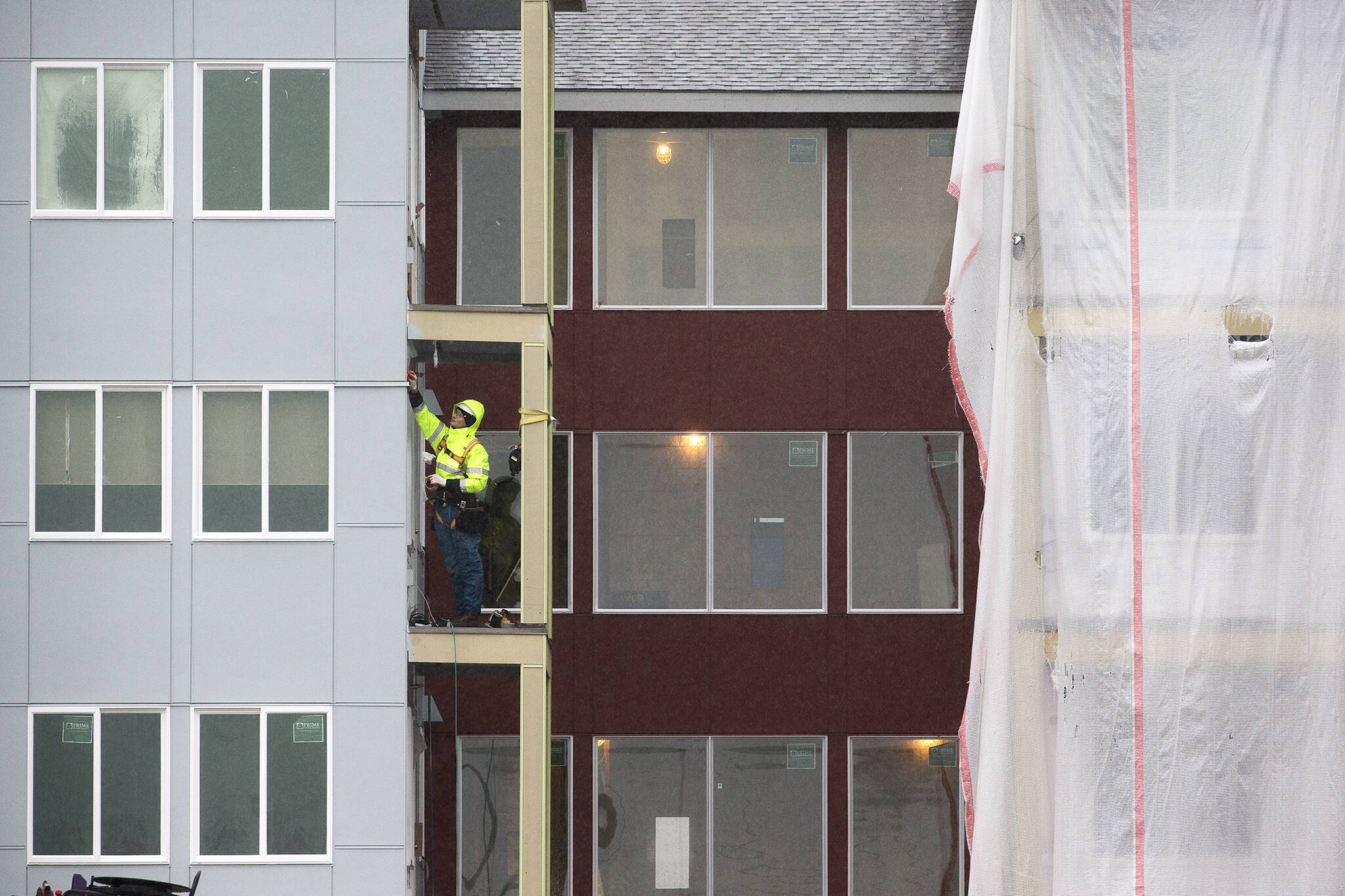EVERETT — The owners and operators of a number of senior apartment complexes in Snohomish County filed responses in court last week after a state lawsuit alleged the businesses engaged in unfair and deceptive business practices.
In June, Washington state Attorney General Nick Brown filed a complaint against California-based property management company FPI Management and Vintage Housing, a company that owns a number of the low-income senior apartment buildings. It alleged the companies violated consumer protection laws through misleading advertising to a vulnerable population.
Five properties were named in the complaint. Three — Vintage at Marine View in Everett, Vintage at Mill Creek and Cedar Pointe Apartments in Arlington — are located in Snohomish County. FPI operates 87 properties across Washington.
Lawyers for both Vintage Housing and FPI filed responses in Snohomish County Superior Court on Aug. 6, saying the companies’ marketing materials were lawful and they complied with state laws regarding a tax incentive program.
FPI Senior Director Sydney Parmalee also said the lawsuit was not indicative of the company’s practices as a whole.
“Who they’ve portrayed us as is not who we are,” Parmalee said in an Aug. 6 interview. “… Our goal is to keep sustainable, affordable housing for our residents and a place that they’re really proud and happy to call home. And we’re committed to continuing to do that with ongoing compliance of all the agencies that we’re required of.”
A representative from Vintage Housing did not immediately respond to a request for comment. In its response filed in court, the company said it plays an important role in developing affordable housing and the state’s lawsuit attempted to turn ordinary landlord-tenant complaints into a consumer protection action.
AMWA Cedar Point Fund LP, owners of Cedar Pointe Apartments in Arlington, also filed a response on Monday, broadly denying most of the state’s allegations.
The Attorney General’s office declined to comment beyond its court filings, citing the pending litigation.
The initial complaint alleged that the senior properties advertised themselves as “luxury” with “resort-style” amenities like fitness centers, swimming pools and communal kitchen areas. But many tenants, according to the lawsuit, found that units were dirty with broken appliances and communal spaces were often either inoperable or inaccessible. The complaint cited alleged instances of mold, torn flooring and leaks in apartments spanning from 2019 to 2022.
In its legal response, FPI said its properties are advertised and marketed accurately. Vintage’s filing said its advertising “speaks for itself.” Both companies said their lease agreements specify that any amenities at the sites are not guaranteed.
FPI also said its lease agreements require renters to inform the company of maintenance issues and it has a policy to respond to reports within 24 hours. The company also said its amenities can be closed due to repairs from third-party vendors, but they are “temporary and are promptly re-opened to tenants,” the response read.
Parmalee said some of the state’s examples of maintenance issues didn’t tell the full story. One example she cited was a sprinkler pipe burst at Cedar Point Apartments in January 2022 that occurred weeks after unusually cold weather swept through Snohomish County.
As a result, residents at the building reported “dizziness, sinus infections and respiratory infections,” the state alleged, forcing tenants to be temporarily relocated in April 2022. The company drained the sprinkler system to prevent freezing later that year, but that led to a fire code violation because the equipment was not functioning, court filings said.
Because the pipe burst was a significant incident involving insurance and adjusters, Parmalee said, it took the company more time to remediate and rebuild the property.
“It really didn’t go into detail about how it was handled, or why it took longer or how it addressed the complaints,” Parmalee said of the state’s complaint. “The property is now stable and running, and residents are happy.”
The properties utilize the Low-Income Housing Tax Credit program, which gives companies tax credits in exchange for capping rents in some units to be affordable for people earning less than the area median income. As an example, a Snohomish County apartment that has units affordable for individuals earning less than 60% of the area median income — that comes out to about $66,000, state documents show — can charge a maximum of $1,767 for a 1-bedroom unit.
That’s a different process than some other housing assistance programs, like Section 8 vouchers, which are tied to an individual’s income rather than the area’s median income. The state’s complaint alleged that FPI’s online application and advertisements didn’t adequately explain how tenants’ maximum rents are tied to the area’s median income rather than the individual’s income.
FPI’s response said the company complies with federal and state laws regarding the tax credit program, stating that it provides information to renters through a state disclosure form and in an addendum to its lease agreements. The company also said there are no federal or state statutes requiring the company to disclose specifically how maximum rents under the tax credit program are calculated.
The state’s lawsuit had asked the court to impose civil penalties of up to $12,500 for each alleged violation of the state’s Consumer Protection Act. The suit is still ongoing.
Will Geschke: 425-339-3443; william.geschke@heraldnet.com; X: @willgeschke.
Talk to us
> Give us your news tips.
> Send us a letter to the editor.
> More Herald contact information.

























